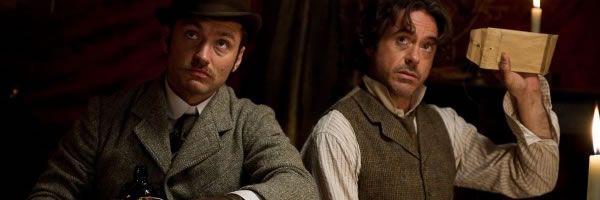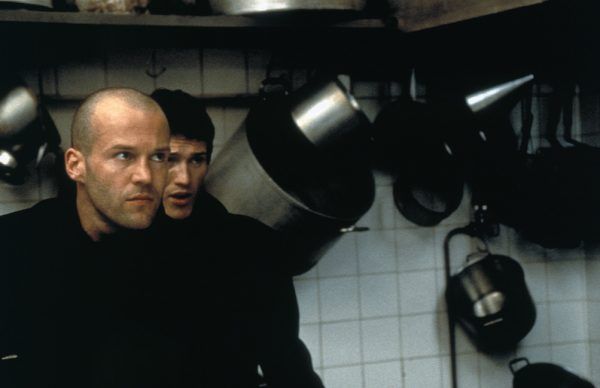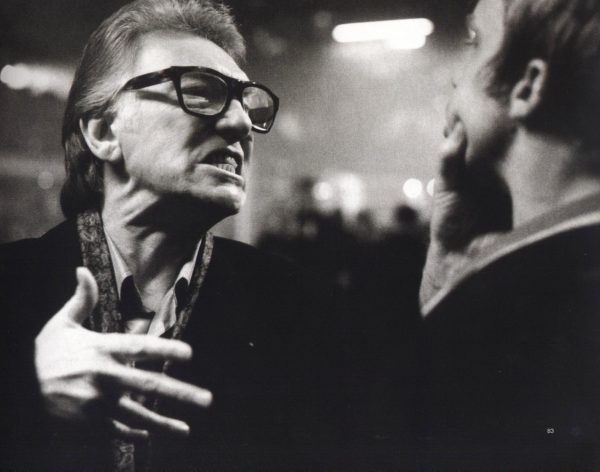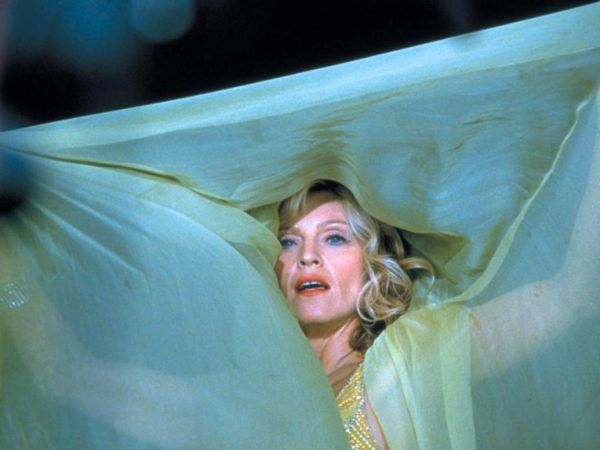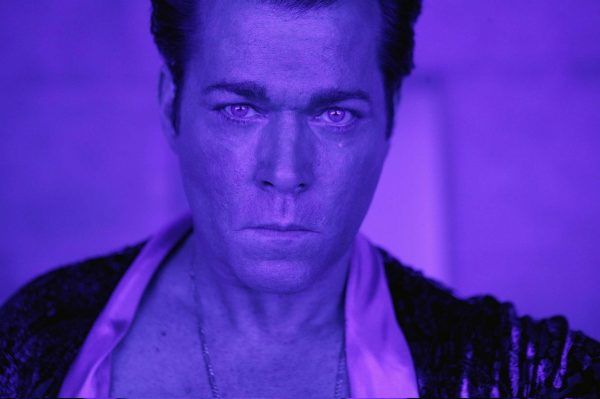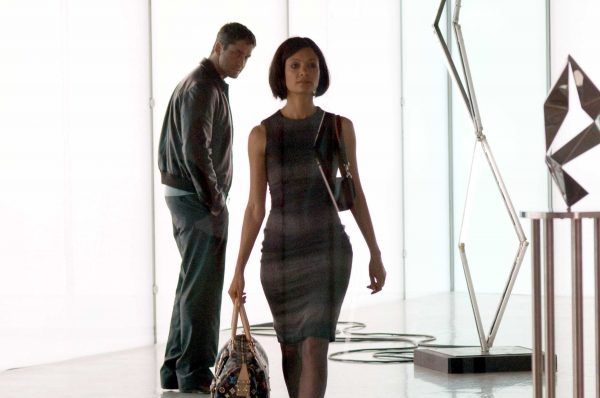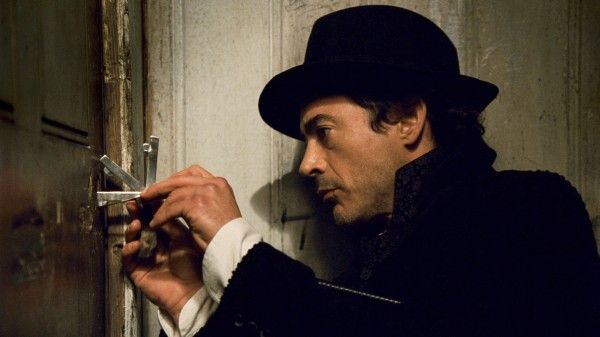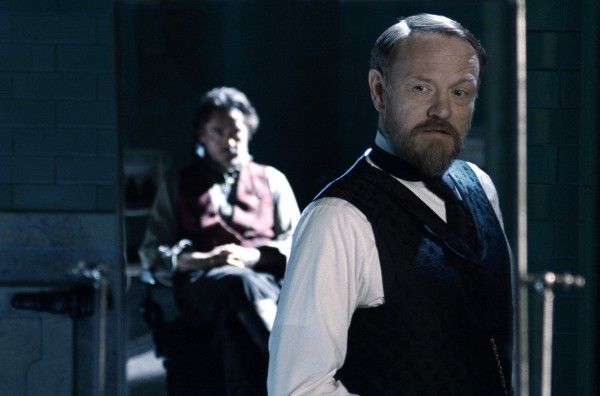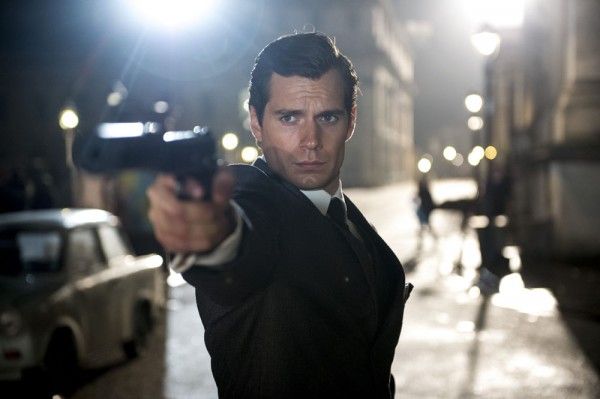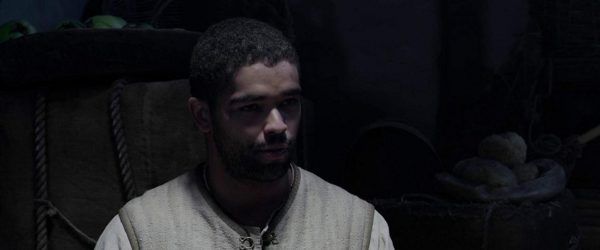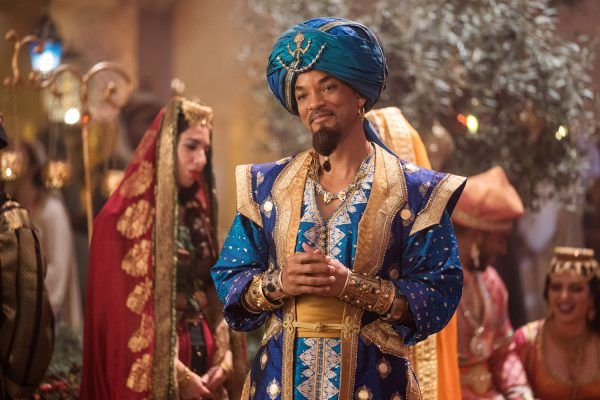On January 24, we all meet The Gentlemen. The latest film from Guy Ritchie, recently known for helming big-budget adaptations like Aladdin and Sherlock Holmes, promises to be a return to form. He got his start crafting very British crime-comedy-capers full of hard-talking crooks, complicated plots, over-the-top dialogue, and eagerly stylized filmmaking. And in The Gentlemen, he’s bringing us back to this world and thensome, offering the dope ensemble cast of Matthew McConaughey, Charlie Hunnam, Henry Golding, Michelle Dockery, Jeremy Strong, Eddie Marsan, Colin Farrell, and Hugh Grant a chance to make an impression in Ritchie’s infectious milieus.
In honor of this “back-to-basics” flick (our review of which you can read here), we decided to step back through all of Ritchie’s previous films and see which of his colorful characters made the biggest impact. Even though not all of them (barely any of them) are “gentlemen,” they shook the screen with their charisma, unpredictable energy, and delightful performances. Here are the best characters from every Guy Ritchie movie. And please don’t send a hit out on us if you disagree.
Lock, Stock and Two Smoking Barrels - Bacon
Jason Statham is primarily known as a figure of glowering stoicism. A hardened professional who doesn’t suffer fools lightly. Even in big-budget live action cartoons like Hobbs & Shaw, where he beats up bozos opposite live action cartoon Dwayne Johnson, he’s cast squarely as the bitter foil, the tortured antihero, the man with few words and less patience. But in Lock, Stock and Two Smoking Barrels, both Ritchie’s directorial debut and Statham’s screen acting breakthrough (he was a professional diver!), Statham is off the leash. His Bacon commands the very first scene, a crackerjack sequence of peddling stolen goods with stupidly clever patter filling the aural space. Statham wields Ritchie’s dialogue like an effortless weapon. It all slips off his tongue with barbed wire energy -- but the sting feels good. As the film deepens and complicates its two-bit gangsters’ plots and double-crosses, Statham’s Bacon maintains this rollicking, active, fun energy. How Hollywood watched this movie and decided to turn Statham into a quiet-ish figure of darkness is beyond me. #LetStathamOffTheLeash2020
Snatch - Brick Top
Snatch has an embarrassment of riches when it comes to delightful characters. From Dennis Farina’s perennially fed up jeweler Cousin Avi, to Benicio del Toro’s eclectic thief Franky Four-Fingers, to, of course, Brad Pitt’s incomprehensible Irish boxer Mickey, Snatch perhaps inhabits the platonic ideals of “a Guy Ritchie character” in many different ways and shades. But for my money, Brick Top, played by Alan Ford in a pair of cornily chic spectacles, runs away with the film. He’s a figure of terror and menace, causing much of the plot to propel forward with his pure psychopathy and eagerness to resort to violence. But he’s also, curiously, relentlessly funny, coming dangerously close to feeling endearing in his grumpy misanthropy. Brick Top is like if you combined The Joker and Carmine Falcone -- he’s a crime family patriarch who knows how the game has been played forever, but he also thrives on chaos and is more than willing to make hair-trigger decisions on impulse alone. Ford’s performance is a subtle piece of physical mastery -- I love the way he keeps his teeth in a perpetual scowl, the way his glasses magnify his eyes, the nasalness of his timbre contrasting cannily with his threats and brags. Even while he’s being a pure monster, Brick Top is maybe Ritchie’s most captivating, watchable character.
Swept Away (2002) - Amber Leighton
So… everyone hated Swept Away. And I get it. Beyond the fun-to-make-fun-of narrative of “Ritchie casts his eccentric celebrity wife Madonna in the lead role,” it’s also a remake of a beloved film, an almost aggressively mean-spirited film, and a film very eager to traffic in some of the worst gender stereotypes, implications of sexual violence, and borderline abusive negotiations of power. And yet, upon modern watch, one positive about the film comes to the surface: Madonna’s performance as Amber Leighton rules. To be fair: Amber Leighton is designed to be the most annoying, spoiled, awful human alive on purpose. And Madonna takes this challenge and chomps down on it like a plate of caviar Amber might demand. She is having so much fun playing this viciously venomous, spoiled-beyond-belief, hyperbolically negative character. Her energy feels pitched at a particularly stylized space, almost more in dialogue with a Preston Sturges screwball comedy than a Ritchie crime caper. She’s a captivating presence on screen -- so much so that when the film’s rom-com conventions require her to fall under Adriano Giannini’s (very problematic) spell, it’s almost annoying. Let Madonna star in a Big Little Lies-esque limited series where she can fully go off the rails, you cowards!
Revolver - Dorothy Macha
I’ve already spent many, many words extolling the strange pleasures of Revolver, so I’ll try and keep this brief: Dorothy Macha is a beautiful coward. Ray Liotta coats him in a superficial sheen, from his perfectly quaffed hair (kept in a net while sleeping), his insatiably tanned skin (the result of constantly using a tanning bed), and especially his aggressively white teeth. He looks like the entire Rat Pack combined and crossed with Dorian Gray, and Liotta plays him like someone’s about to find his picture and ruin his whole deal. In the first half of the picture, Dorothy keeps up appearances well enough, bossing around henchmen and reacting to absurdities around him with delightful voice of reason work from Mr. Liotta. But by the film’s second half, a switch is flipped, and Dorothy loses his grip on everything, resulting in sterling depictions of madness, denial, and betrayal from Mr. Liotta. Also, I’ve made that wide shot of him standing in that decadent, gold, art-covered room my phone’s home screen.
RocknRolla - Stella
Many Guy Ritchie characters gain our attention by ostentatiously gaining our attention. Ritchie worlds tend to be show-offy, bold, unsubtle -- and his characters follow suit. Not necessarily so with Stella. The quietly corrupt underground accountant, played with chilly finesse by Thandie Newton, stands out in RocknRolla, a loud, brutish film, by dialing down the theatrics and simply doing her job. And her job ain’t pretty -- she answers to the corrupt businessman Uri (Karel Roden) while navigating the knotted turns and double-crosses of “The Wild Bunch.” This wild bunch, composed of One-Two (Gerard Butler), Handsome Bob (Tom Hardy), and Mumbles (Idris Elba) feel like parodies of previous Ritchie antiheroes, their shticks dialed up past 11, their bantering-while-doing-crime-shit at a fever pitch. But Stella never stoops to their level, nor condescends to them (too much, anyway). She stays truly herself, drawing us in with her professionalism regarding dirty work, while never allowing us to forget that it is, indeed, dirty work. The devil is more effective when he’s unassuming, I suppose. And while Ritchie does eventually place Stella at the center of a love triangle that feels, in modern eyes, mildly reductive given she’s one of just two female characters in Ritchie’s typically male-driven story, Stella (and Newton) retains her quietly captivating dignity.
Sherlock Holmes - Sherlock Holmes
I mean… duh doy! Ritchie’s 2009 Sherlock Holmes adaptation had a bit of an uphill battle. It was Ritchie’s first big-budget studio picture, his first from someone else’s screenplay, and an adaptation of one of our most well-known, adapted characters -- to the point of cultural cliche. Plus, just one year later, we’d get the popular BBC Sherlock series, with Benedict Cumberbatch becoming instantly iconic in the title role. And while time may have given the edge to Cumberbatch in terms of influence and acclaim, Robert Downey Jr.’s take should not be counted out. Whereas Cumberbatch is frigid and tight, Downey is warm and loose, his Sherlock bursting at the seams with lanky, punk energy (Jude Law’s Watson might be closer in temperament to Cumberbatch’s Sherlock). Downey plays the mad detective like he’s bemused, not annoyed, by the world. Everything is a puzzle, a game, a restless object of solving. And solving, dear reader, gives him great joy. But also, when Downey’s Sherlock gets serious, look out. Ritchie’s slow-mo “explain how I beat the shit out of this guy while I beat the shit out of this guy” sequences are such a bonkers addition to the Sherlock canon. On paper, it absolutely should not work. In practice, it makes the character sing.
Sherlock Holmes: A Game of Shadows - Moriarty
Is Moriarty our first ASMR villain? As played by Jared Harris in Sherlock Holmes: A Game of Shadows, Moriarty hisses, whispers, and speaks in a lower register inviting you to sit up and listen closer -- while making your spine tingle and goosepimples raise. Moriarty is the Sherlock Holmes villain, and Ritchie had some big shoes to fill. Luckily for us, Harris’ feet fit perfectly. He seethes and condescends to his foes with aggravating assurance. He knows he’s the smartest man in the room -- until he meets Sherlock. Watching the two square off in games both mental and physical (a final fight scene, wherein Moriarty does the “explain how I beat the shit out of this guy” trick alongside Sherlock, collides both parts brilliantly) is crackerjack entertainment, speaking to that key friction at the center of Sherlock and Moriarty’s relationship. They are, like Batman and Joker, made for each other. The perfect counterparts in a world full of tepid cases with inferior intellect. Harris delights in toying with Downey, and more important, lowkey loves being toyed with by Downey. And if he ever wanted to start a YouTube channel, I think he’d get a lot of subscribers.
The Man from U.N.C.L.E. - Napoleon Solo
The Man from U.N.C.L.E., based on the swingin’ sixties spy series of the same name, is underrated in Ritchie’s canon, even in his “big budget studio remake” period. Which is a shame -- the flick is sneakily a perfect fit for Ritchie’s sensibilities and interests, giving him a chance to smoothen out his rougher impulses and craft some pleasingly chill action vibes. If his other movies are “cool” the way that old scotch is “cool,” U.N.C.L.E. is "cool" the way that a tiki drink is “cool.” It’s refreshing and accessible, while still giving you that kick. No character exemplifies this mode more than Napoleon Solo. Beyond his name (which, Jesus, that name, I’m swooning), he’s played by Henry Cavill, further proving that he rules in any blockbuster action film that doesn’t involve friggin’ Superman. Cavill affects a dry, clipped, smile-inducing American accent, invoking the square kind of charms embodied by a Cary Grant. He chews the gum of Ritchie and co-writer Lionel Wigram’s dialogue with calm collection, serving as our beacon of groundedness in a topsy-turvy world. Napoleon Solo is the kind of guy you wanna hang out with, a guy who makes every conversation feel like it’s seconds away from turning into either a gunfight or a romantic rendezvous. He radiates chemistry with everyone else on the screen, from his gruff bromance with Armie Hammer to his rat-a-tat banter with Alicia Vikander. He’s the kind of character who elevates everyone by being so endearingly elevated himself. I just wanna keep watching him… do stuff!
King Arthur: Legend of the Sword - Sir Tristan "Wet Stick"
This movie did not do well for Mr. Ritchie. Originally planned as the first of six (six!) Arthurian installments, King Arthur: Legend of the Sword instead earned dismal reviews and flopped hard enough at the box office to slay those designs where they stood. But among this medieval mess lies at least one glimmering piece of gold: Sir Tristan, aka "Wet Stick,” as played by Kingsley Ben-Adir. He’s absolutely a supporting character in the developing world of Ritchie’s King Arthur. But as the film wildly rockets through different types of tones and styles (sometimes feeling like one of Ritchie’s heist-comedies with a new coat of paint, sometimes diving into “surreal horror-tinged fantasy,” sometimes just doing those Sherlock Holmes fight scenes but shirtless this time), the dang Wet Stick stays sturdy. Ben-Adir is funny when he needs to be, straight-laced when he needs to be, and the perfect utility player for a patently strange film. I think King Arthur: Legend of the Sword deserves more of a “cult oddity” status than its tepid response gave it, and I think that Ben-Adir’s understated work deserves more praise than his more prominent co-stars.
Aladdin (2019) - The Genie
The Aladdin live-action remake, one of two Disney dropped in 2019, deserves more accolades due to its daffy willingness to charm. Whereas Jon Favreau’s The Lion King rendering lurched with dutiful obligation and unimaginative photorealistic CGI, Ritchie’s Aladdin makes some capital-M Moves, ensuring at the very least a watch that has more of a shot of sticking in your brain and bones. The most indicative of this (relative) riskiness? Will Smith’s Genie, a character so previously dominated by Robin Williams. While he at times looks like a normal humanoid, at other times he is, indeed, a big ol’ blue guy, packing muscles, floating variously throughout his environments while his very Will Smith-face uncannily pokes out and sticks around his cloudy neck. Already, Ritchie’s choices are feeling borderline risky, ensuring some Cats-like camp and backlash. But you know what? Smith takes the role and has a ton of fun with it, giving his Genie his unique spin, reminding us all how much of a charming movie star he is. If you allow yourself to get onto his wavelength -- the kind of wavelength where, during a deliriously lensed rendition of “Friend Like Me,” the Genie’s arms turn to guns and he shoots and punches people like some Lock, Stock gangster -- you will find lots of goofy, unhinged joy in the Genie.

